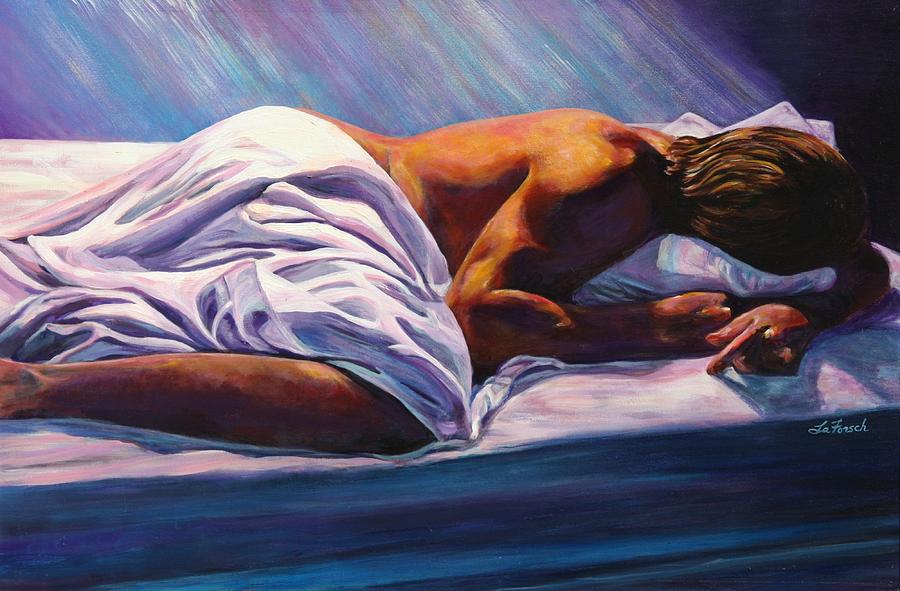WHAT SHALL I DO TO WAKE YOU UP?
Attuned to reading your body language,
I look at you lying on your bed,
Your head resting on a blue frilled pillow.
Your head resting on a blue frilled pillow.
Bridging my heart to yours,
I look at your sleeping body,
Immaculate, jubilant,
A treasured holy grail,
Observant and intelligent,
Of impeccable integrity.
Wake up honey,
The rain is lashing
Against the trees,
Wake up.
I look at your sleeping body,
Immaculate, jubilant,
A treasured holy grail,
Observant and intelligent,
Of impeccable integrity.
Wake up honey,
The rain is lashing
Against the trees,
Wake up.
Wake up, companion of my soul,
My soul mate, wake up.
The sun rays are glinting on your grey hair.
I have put some music on
And cooked your favorite breakfast
For I know, hungry, you are angry.
My soul mate, wake up.
The sun rays are glinting on your grey hair.
I have put some music on
And cooked your favorite breakfast
For I know, hungry, you are angry.
On some days, you are Hamlet
And on other days you are Othello.
And yet, today you will be my Romeo.
Listening on the rain pattering
On the window panes,
I look at the oleanders blooming,
I listen to the miners boots
Trampling up the cobble-stoned way to work,
The donkeys laboring
Uphill with loads of firewood
And a constellation of emotions
Break forth from my heart.
I look at the myriad facets of your face
And I want to unearth
The passions in you.
Conqueror of my skies,
Open the beacon light of your eyes
That will lead me to your heart.
And on other days you are Othello.
And yet, today you will be my Romeo.
Listening on the rain pattering
On the window panes,
I look at the oleanders blooming,
I listen to the miners boots
Trampling up the cobble-stoned way to work,
The donkeys laboring
Uphill with loads of firewood
And a constellation of emotions
Break forth from my heart.
I look at the myriad facets of your face
And I want to unearth
The passions in you.
Conqueror of my skies,
Open the beacon light of your eyes
That will lead me to your heart.
What shall I do to wake you?
Shall I kiss your hand
Or bite you gently on your lips?
Shall I caress your head
Or kiss your neck
To taste a little nectar from it?
Tell me, what shall I do
To wake you up?
Shall I kiss your hand
Or bite you gently on your lips?
Shall I caress your head
Or kiss your neck
To taste a little nectar from it?
Tell me, what shall I do
To wake you up?

Sleeping In -- Susi LaForsch
Othello, Hamlet, and Romeo are 3 characters created by William Shakespeare. "The Tragedy of Othello, the Moor of Venice" (1603?) was based on "Un Capitano Moro," an Italian story published in 1565 by Cinthio (Giovanni Battista Giraldi). [The same collection, the "Hecatommithi," also contained "The Story of Epitia," the germ of Shakespeare's "Measure for Measure" (1604).] The 19th-century essayist William Hazlitt described Othello as "noble, confiding, tender, and generous; but his blood is of the most inflammable kind;" he blends the various human impulses into a "noble tide of deep and sustained passion, impetuous but majestic."
ReplyDelete"The Tragedy of Hamlet, Prince of Denmark" (ca. 1599-1602) was based on the story of Amlethus, preserved by the 13th-century Danish chronicler Saxo Grammaticus and subsequently retold by François de Belleforest in 1572; an English version, "The Hystorie of Hamblet," was published in 1608. Hamlet, uncertain if his uncle had killed his father and married his mother, delayed taking his revenge until he was certain. Hazlitt: "he is a young and princely novice, full of high enthusiasm and quick sensibility."
"The Most Excellent and Lamentable Tragedie of Romeo and Juliet" (ca. 1591-1595) was adapted from Luigi da Porto's 1524 story "Giulietta e Romeo," which was refined by Matteo Bandello in 1554; Pierre Boaistuau translated the Bandello version into French in 1559, which Arthur Brooke translated into English in 1562 as a narrative poem. For Hazlitt, Romeo is Hamlet in love. There is the same rich exuberance of passion and sentiment in the one, that there is of thought and sentiment in the other. Both are absent and self-involved, both live out of themselves in a world of imagination. Hamlet is abstracted from everything; Romeo is abstracted from everything but his love, and lost in it."